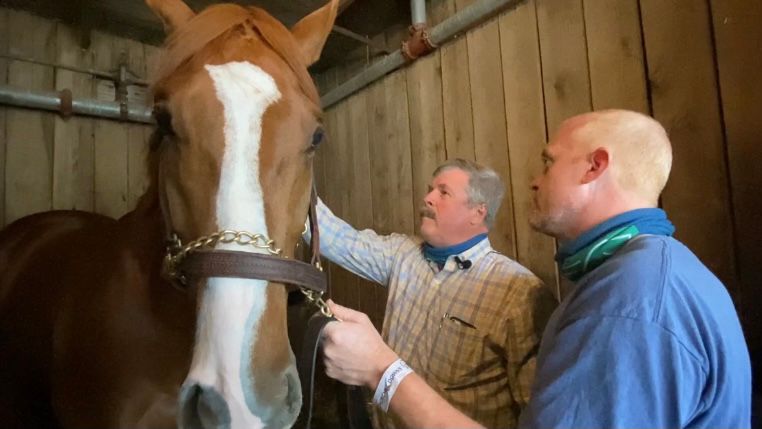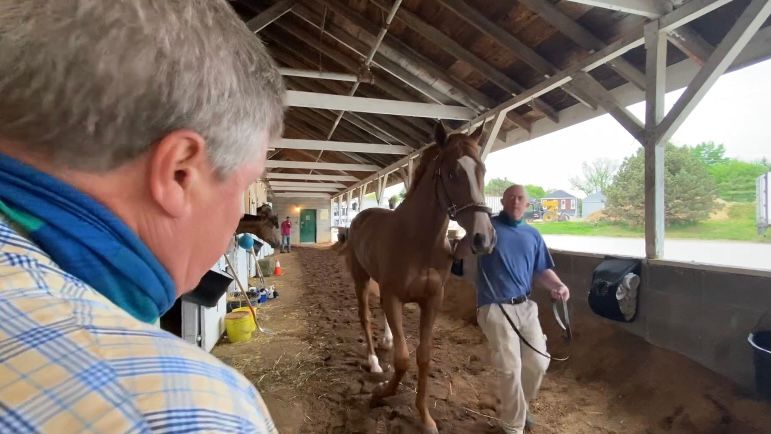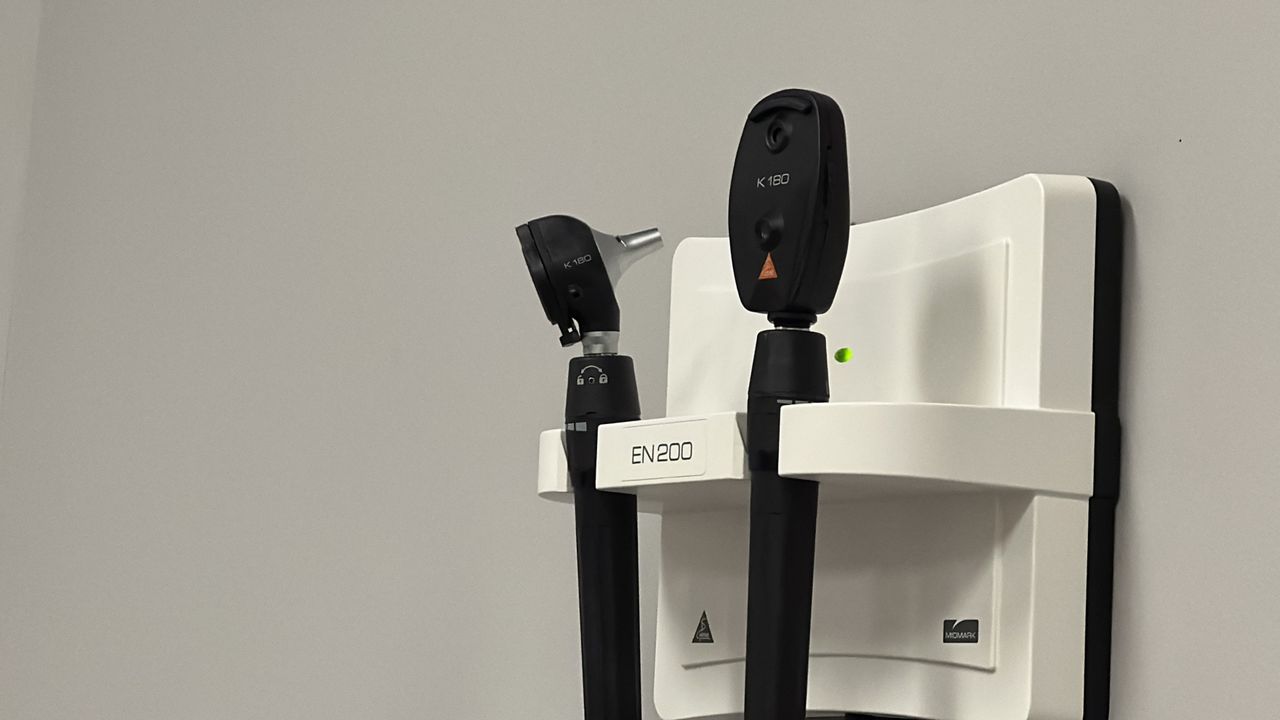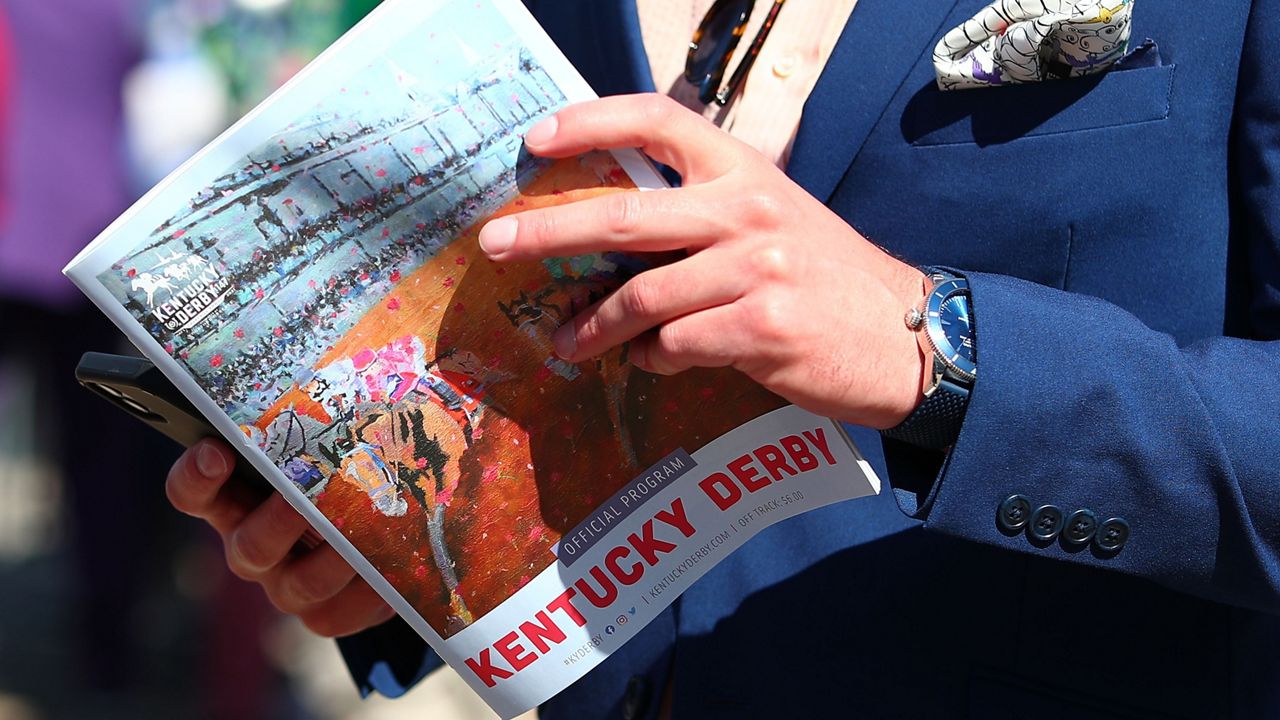LOUISVILLE, Ky. — Before the horses are loaded in the starting gate Friday and Saturday, a team of veterinarians has to make sure they’re fit to run.
Dr. Bruce Howard, the equine medical director of the Kentucky Horse Racing Commission (KHRC) gave Spectrum News 1 a look at that process this week.

With the help of a thoroughbred that will not be running in The Derby, Howard demonstrated what goes into a typical prerace exam, feeling the horse's legs and checking for heat, pain or swelling.
“What we’re looking for on any of these is getting any reaction over points that would make us worried about a horse," he said.
After the exam, he would watch the horse take a jog in the shed row, checking for any abnormalities.
“They should hit the ground the same on both sides ... left versus right,” Howard said.
Oaks and Derby horses are checked by the KHRC every other day and then the morning of the race, Howard said. It takes three teams of veterinarians to get the job done.

"We have a good relationship with the private veterinarians in that we’re all working for the same thing — everybody wants these horses to compete safely every day," he said.
On a typical race day, there are three veterinarians watching the race from the track, but 11 will watch The Derby, with an anesthesiologist and a surgeon on standby, according to Howard.
Unlike the fans, Howard is not watching for the winner.
“To be honest, I rarely know who’s leading or trailing, or finishes the race because I’m watching the group as a whole," Howard said. "I’m watching for a safe trip. I’m watching for horses coming in on each other, hoping nobody’s going to get in too tight, somebody could clip heels."
After the race, the winner and three to four other horses will provide blood and urine samples that will be sealed with evidence tape and sent to a lab, according to Howard.
No medications are allowed on race day and the KHRC tests for approximately 1,500 types of drugs, he said.
"The racing commission is charged with examining the horses, testing the horses, you know, if there’s wagering on these horses, we’re here to make sure that everything’s up and above board," he said.
This is the first year horses in the Oaks and Derby will not be allowed to run using Lasix — a medication that is thought to reduce bleeding in horses, according to Howard.










